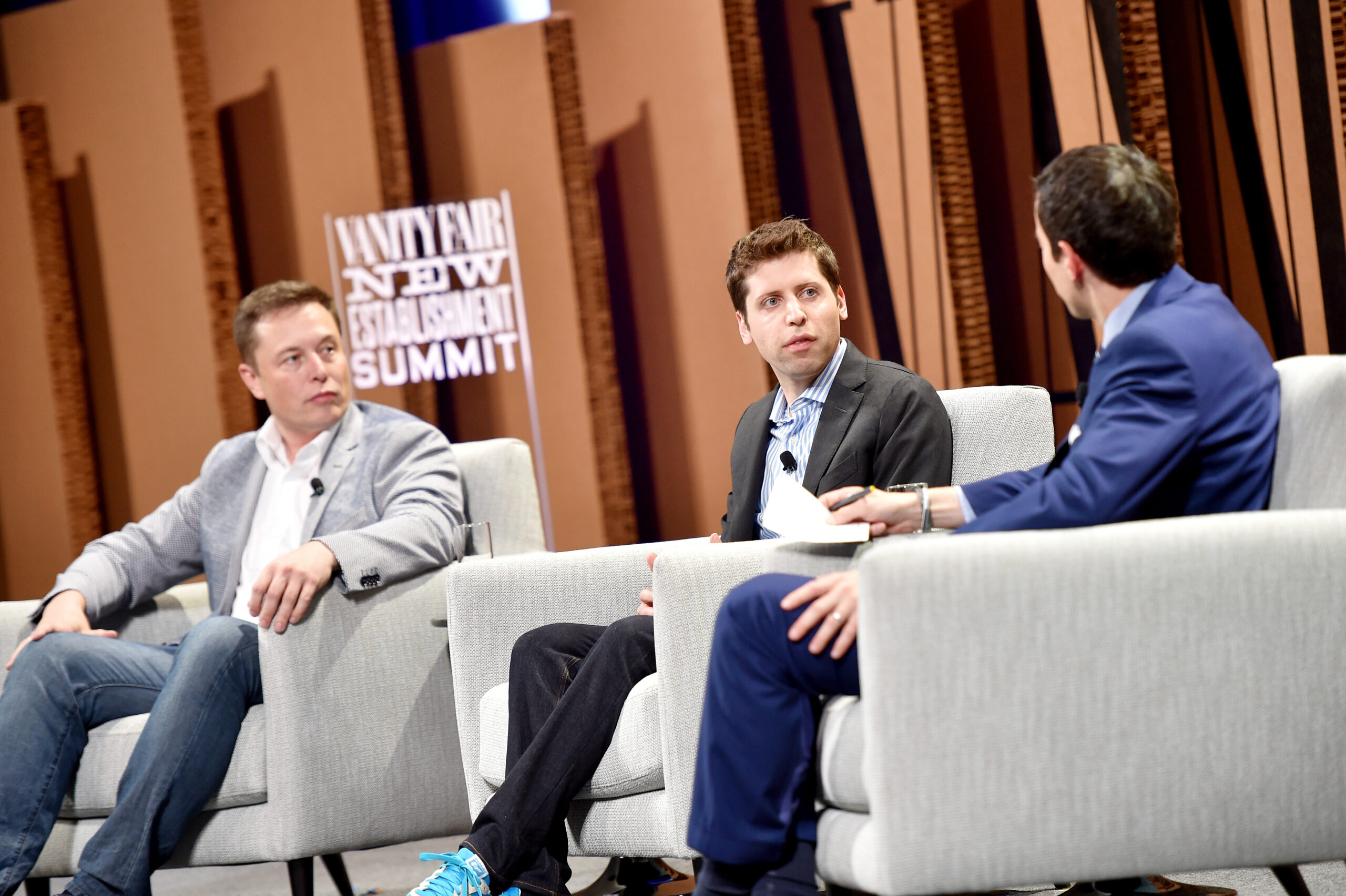
Elon Musk, the visionary entrepreneur behind ventures such as SpaceX and Tesla, has initiated a lawsuit against OpenAI, the AI research lab he co-founded, including its co-founders Sam Altman and Greg Brockman, as well as related entities.
This legal action stems from accusations that OpenAI has veered off its foundational course — transitioning from a nonprofit dedicated to the altruistic development of artificial intelligence to a profit-oriented entity. Musk’s contention is that this shift is not only a breach of the original contract but also a deviation from the lab’s mission to develop AI that would universally benefit humanity.
What Was OpenAI’s Original Mission?
When Musk, Altman, and Brockman, among others, established OpenAI in 2015, they envisioned it as a bulwark against the monopolization of AI technologies by corporate giants like Google. The foundational ethos was to ensure that advancements in AI would be accessible to the public, fostering an environment where AI could be developed and leveraged for the collective good rather than corporate profit. This mission was encapsulated in OpenAI’s founding agreement, which mandated that its technological advancements be “freely available” to the masses.
Musk’s Legal Accusations
However, according to Musk’s legal filing in a San Francisco court, OpenAI’s trajectory has dramatically shifted. Following a partnership and substantial investment from Microsoft — approximately $13 billion — OpenAI has allegedly reoriented its focus towards commercializing its AI research, particularly its advancements in artificial general intelligence (AGI), for profit. Musk’s lawsuit characterizes this pivot as a betrayal, transforming OpenAI into a “closed-source de facto subsidiary” of Microsoft, thereby prioritizing the tech behemoth’s financial interests over the global public’s.
Musk’s financial involvement with OpenAI was significant, with donations surpassing $44 million between 2016 and September 2020, making him the organization’s largest donor during its early stages. Despite distancing himself from OpenAI’s board in 2018 due to potential conflicts of interest with Tesla’s own AI developments, Musk has maintained his critique of OpenAI’s direction. His principled stance is further underscored by his refusal to accept a stake in OpenAI’s for-profit arm, a decision rooted in his concerns over the organization’s ethical commitments.
This lawsuit is not an isolated expression of Musk’s apprehensions. In the broader landscape of AI development, Musk has actively sought alternatives that align with the original mission of OpenAI, exemplified by his social network X’s introduction of Grok, a direct competitor to OpenAI’s ChatGPT. Meanwhile, Altman has publicly addressed Musk’s criticisms, attempting to downplay their significance while affirming his belief in OpenAI’s positive contributions to society and technological advancement.
The Microsoft-OpenAI Partnership
The legal complaint meticulously details the intertwined relationship between Microsoft and OpenAI, leveraging comments from Microsoft CEO Satya Nadella to illustrate the depth of their collaboration. Nadella’s remarks suggest that Microsoft views OpenAI’s contributions as central to its AI strategy, to the extent that Microsoft would retain comprehensive control over the intellectual property and resources, even if OpenAI were to cease operations. This, according to Musk, is indicative of OpenAI’s departure from its nonprofit origins and its alignment with Microsoft’s commercial interests.
Musk’s Vision for AI Development and Governance
Central to Musk’s lawsuit is the allegation that OpenAI’s current operations, particularly its licensing of GPT-4 to Microsoft, contravene the organization’s commitment to developing AGI for the benefit of humanity. Musk contends that GPT-4, which he asserts constitutes AGI, has been inappropriately commercialized in violation of the founding principles. Through this legal challenge, Musk seeks to compel OpenAI to revert to its nonprofit mission, barring it from monetizing technologies intended for public benefit.
Furthermore, Musk’s legal action calls into question the composition of OpenAI’s board under Altman’s leadership. The lawsuit criticizes the board’s makeup, suggesting it lacks the requisite expertise in AI governance and ethics that was foundational to OpenAI’s mission. This shift, in Musk’s view, signifies a departure from the lab’s commitment to ethical AI development and governance, potentially jeopardizing its ability to fulfill its stated goal of benefiting humanity.
By pursuing this lawsuit, Elon Musk is not merely contesting OpenAI’s current strategic direction; he is catalyzing a broader dialogue on the governance, ethics, and future of AI development. Musk’s actions underscore a pressing need for AI technologies and their developmental frameworks to remain grounded in principles that prioritize the collective good over individual or corporate gains. This case could set a precedent for how AI research organizations balance ethical considerations with the lure of commercial success, shaping the trajectory of AI development and its impact on society for years to come.
Related News:
Featured Image courtesy of Mike Windle/Getty Images for Vanity Fair
